How Spirituality Empowers Allyship
Listening To and Amplifying the Unheard: The Palestinian People
Author’s Note:
I wrote an earlier version of this article in the summer of 2020, in response to race relations and police brutality in America. How can we forget the tragic George Floyd, Breonna Taylor and Ahmaud Arbery murders forever etched into our collective consciousness?
Now I’m noticing similar critiques of both white Americans and spirituality—two earthly characteristics of the temporal persona behind this keyboard—regarding the ongoing Palestinian genocide. That Americans aren’t doing enough (quite possibly true), and that spirituality is just a “love & light” band-aid (couldn’t be farther from the truth.) This article makes the case for the validity and practicality of authentic spirituality with an activist lens. I felt compelled to republish it, tweaking the focus to the Palestinian liberation movement, which interestingly enough has long shared an overlap of solidarity with Black America.
The Palestinian people have been a part of my conscious efforts since 2018, when I began filming my feature, “Solidarity: Five Largely Unknown Truths about Israel, Palestine and the Occupied Territories”, released in 2020 (watch here on YouTube for free). I have emphatically condemned the horrific attacks on Israeli citizens by Hamas militants on Oct. 7th 2023, and I have deep love for Jewish people and the Jewish religion. My political stance is best reflected by non-violent Palestinian activists like the late great Edward W. Said, contemporary journalists like Mariam Barghouti, and poets like Mosab Abu Toha, alongside Jewish activist organizations like Jewish Voice for Peace, self-described as “Jews organizing toward Palestinian liberation and Judaism beyond Zionism.”
How Spirituality Empowers Allyship
There’s a trend emerging across current takes on social—that spirituality is privileged, and that despite its importance for well-being, it’s reserved for comfortable cushions, not community organizing or social justice. I’m all for self-awareness. Analyzing one’s own practice in the grander societal picture is useful, but I disagree with the initial premise.
In all actuality, spiritual work can be hugely impactful in benefiting racial and societal harmony.
The two greatest heroes of social action of the 20th century, Gandhi and MLK, were intensely spiritual.
Gandhi’s movement removed the British Empire from India without firing a bullet. When he was assassinated, his dying words were “Ram Ram”, a mantra of divine worship. King was, of course, a Christian minister, who once said, “I have so much to do today that I had better spend another hour on my knees”—implying that his spiritual practice of contemplative prayer fueled his productivity and passion as America’s most legendary community organizer. Happy MLK Day.
Reader’s note: Figures of this magnitude are complex, as they are indeed humans underneath. There is a tense scholarly debate about racist comments Gandhi made during his colonial beginnings as a lawyer in South Africa. I personally side with scholars who maintain that they were before his vigilantly anti-colonial, universalist evolution but you can decide for yourself.
Beyond these two massive figures, true spirituality has to do with the evolution of the conscious individual.
Society will only advance to the level at which we all expect and demand it to become, when every person is focused on our own conscious transformation.
From the ancient Taoist text, the Hua Hu Ching:
“If you want to awaken all of humanity, then awaken all of yourself.
If you want to eliminate the suffering in the world, then eliminate all that is dark and negative in yourself.
Truly, the greatest gift you have to give is that of your own self-transformation.”
The above quote is absolutely, mind-melting-ly true. Self-transformation is the answer.
And also, to avoid trivializing the suffering taking place across the world, let’s be especially clear here: privilege can create blind spots. It could be considered an aspect of “all that is dark and negative in yourself.”
Privilege contributes to this perpetual status quo of seemingly-endless heartbreak, one gut-wrenching photograph of a newly-orphaned Palestinian child immediately followed by another gut-wrenching video of a father mourning the deaths of his sons. This unbearable series of murderous incidents by the Israeli military’s state violence was not decades ago, or even a few years ago. We have witnessed an unfolding genocide, livestreamed to our phones since October 8th.
![Palestinian children grieve those killed following Israeli airstrikes, at the Nasser Medical Hospital, in Khan Younis, southern Gaza, on Monday, Dec. 11, 2023. [Ahmad Salem/Bloomberg via Getty Images] Palestinian children grieve those killed following Israeli airstrikes, at the Nasser Medical Hospital, in Khan Younis, southern Gaza, on Monday, Dec. 11, 2023. [Ahmad Salem/Bloomberg via Getty Images]](https://substackcdn.com/image/fetch/$s_!q2Bx!,w_1456,c_limit,f_auto,q_auto:good,fl_progressive:steep/https%3A%2F%2Fsubstack-post-media.s3.amazonaws.com%2Fpublic%2Fimages%2F96b0dcb5-63a4-420d-b1f9-5dab6f4a3a93_1200x800.jpeg)
Privilege is an uneducated, or worse—intentionally-ignorant—avoidance of the suffering of marginalized people, which needs to be called out directly through education and awareness.
And spirituality can help. Quoting the 13th-century Christian German mystic and philosopher, Meister Eckhart:
Spirituality is not to be learned by flight from the world, or by running away from things, or by turning solitary and going apart from the world.
Rather, we must learn an inner solitude wherever or with whomsoever we may be.
Jesus of Nazareth shared this viewpoint. He was clearly concerned about uplifting the lowest members of society, stating explicitly that “whatever you did for one of the least of these brothers and sisters of mine, you did for me” (Matthew 25:40). In Luke 10:30, he specifically uses the illustration of the Good Samaritan—a despised ethnic outcast to his Jewish audience—as the hero of a story about becoming a loving neighbor.
The Buddha taught metta, or lovingkindness to all beings. Krishna explained that service to others is not only useful but actually a form of divine worship. The true teachings of spiritual principles across a variety of world religions and spiritual systems from the common to the esoteric understand unity and emphasize compassion, solidarity, and love.
Unfortunately these truths are often twisted by institutional religion into egoistic judgements and hypocritical tirades of faux-moral-righteousness. This frustratingly prevalent ‘high-horse-ness’ afflicts all religions, including American Christianity, diluting the true teaching underneath. But that’s a whole ‘nother article!
The traits that I keep seeing the activist internet requesting, in my view, are all methods that can be aided by, and established through, sincere spiritual work.
Listening
Speaking as an ally, on behalf of allies and allies-to-be, the first step in allyship is listening.
Within the Buddhist tradition, there is a practice called mindful listening. It’s a “way of listening without judgment, criticism or interruption, while being aware of internal thoughts and reactions that may get in the way of people communicating with you effectively.”
It’s as simple as sitting, resolutely in the present moment with the other person: open ears without bringing anything else to the table.
This practice can be uncomfortable. I’m a talkative person. I want to respond to you right away, but in my tendency to respond and acknowledge, I can bring my preconceived thoughts and feelings to my response without fully hearing the extent of what you said.
And this applies directly to the heartbreak caused by immense, inhumane suffering.
Conversations about humanitarian crises are emotionally heavy. We can be so quick to deflect or jump to a conclusion to avoid the weight of the discomfort. Our inability to listen to (and to truly hear) the experience of our Palestinian sisters and brothers is preventing us from acknowledging the current state of injustice and agony, which keeps all of us from moving forward together in a harmonious way.
Here are just a few examples of the unimaginable pain being endured by Palestinians. As of this writing:
The Israeli military has killed over 22,000 CIVILIANS since October 8, 2023
As of November 11, the Israeli military had destroyed over half of the HOSPITALS in Gaza
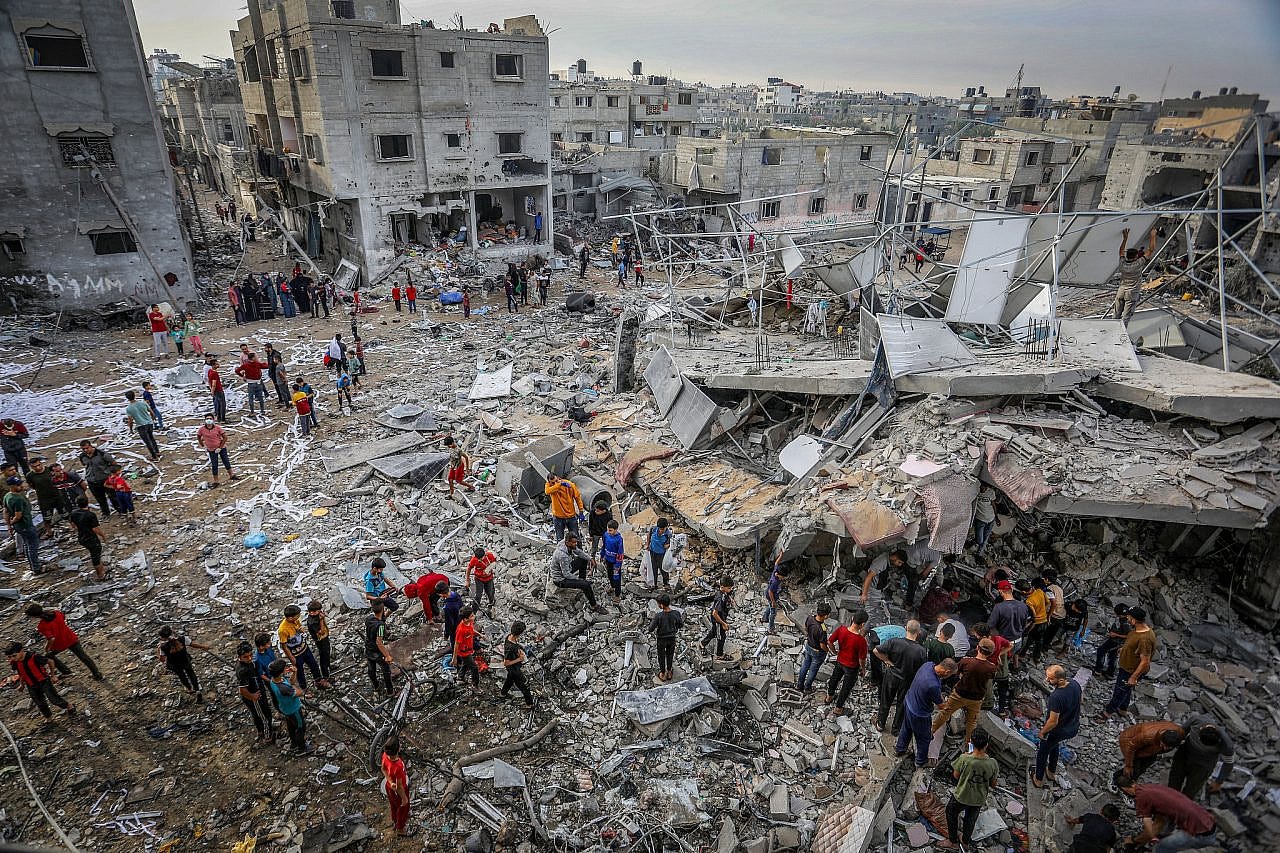
These injustices are real and they need to be understood thoroughly.
The Palestinian experience is one marred by decades of brutal subjugation since The Nakba, Arabic for “catastrophe”, in 1948, culminating into a nightmarish crescendo at the end of 2023.
The late great Palestinian-American scholar and activist Edward Said writes:
“Palestinians have been displaced. They have had their society shattered. They have had to live under military occupation. Their lands and lives are today systematically torn apart. There are no two ways about it I believe. Which is not to say that we must simply overlook the tragic history of the Jews, on the contrary, I would always want to say that as a Palestinian I should make my case to defenders of Israel on the basis of, taking full account of, making due acknowledgment of the history of discrimination against Jews. That kind of policy should never ever be visited on anyone for any reason at all, least of all by Jews in the name of their safety and independence.”
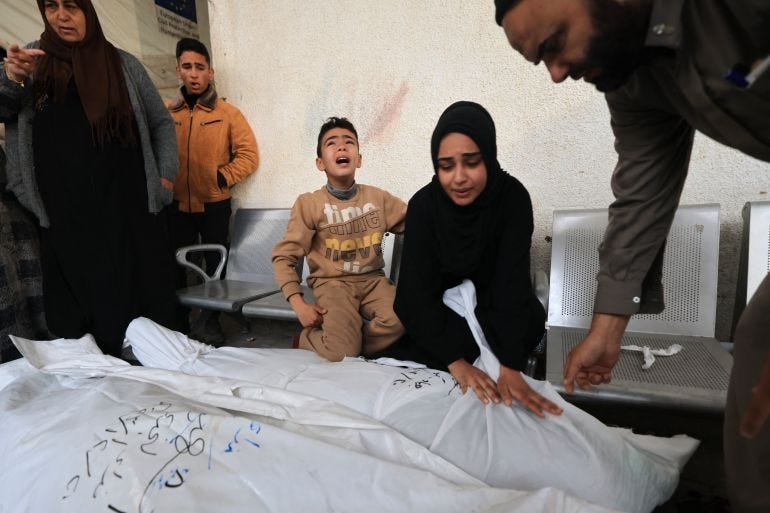
Amplifying
My spiritual work is very clear that not only are we all one family, but Vedantan philosophy even takes it a step further: that we are all ultimately One. Each cell makes up the body. Each drop makes up the ocean. The mystics tell us that we are all merely separate masks of the same Being, the All masquerading as the Many.
So let’s work toward having that recognition in our daily lives—Oneness is indeed the end-goal—and yet, before we can acknowledge this inherent unity, we must first recognize the differences. As we start to become more aware of the disparities between imperialist societies and victims of imperialism (through listening and education), the logical next step is to share this information, with other masks of our Self, in a loving way.
The late great James Baldwin, the famous Black American novelist and Civil Rights activist said:
“If I love you, I have to make you conscious of the things you don’t see.”
What I’m calling “Amplification”, includes a few subheadings.
Educating others by sign-pointing to relevant informational material by Palestinian educators, writers, and activists
A huge component of allyship is giving a voice to the voiceless and using our privilege of influence, no matter how significant, to help spread awareness. So please, follow these sources and retweet, reblog, restory.
Dima Khatib - A Syrian-Palestinian journalist born in Damascus, managing director of AJ+
Mariam Barghouti - A Palestinian-American journalist featured in CNN, Al Jazeera English, The Guardian, BBC, Huffington Post, The New York Times, & Newsweek
Motaz Azaiza - A Gaza born Palestinian activist, journalist and photographer, recently selected as the GQ Middle East’s Man Of The Year in 2023
Laila El-Haddad - A Saudi-Arabian Palestinian immigrant, activist, and mother
Wissam Nassar - A Palestinian journalist and photographer who was a 2015 Pulitzer Prize Finalist, featured in The New York Times, Washington Post, Time, and more.
Visualizing Palestine - A non-profit media center that acts as the intersection of communication, social sciences, technology, design and urban studies for social justice.
IMEU - A non-profit organization giving access to untold stories, facts, and expert sources on all things Palestine.
Actively confronting falsehoods about the conflict either online or in-person
As stated by Amélie Lamont of The Guide to Allyship, she actually began creating her guide as a response to a situation of faux-ally cowardice:
In the summer of 2016, someone I considered an ally stood by and watched as I, a Black person, was berated by a racist. To make matters worse, I had a conversation with this person earlier in the day about the power allies can wield in situations of discrimination. But when the time came for them to take action, they were more interested in protecting their comfort.
Authentic spirituality prioritizes bravery over cowardice.
The Shaolin monks of ancient China.
The Freedom Riders in Selma, Alabama.
The Japanese samurai.
The Indigenous tribes of Latin America: from the Toltecs to the Maya.
Spiritual inner work can help strengthen our courage when it’s time for worldly outer work.
“If there is one word that you find coming out like a bomb from the Upanishads, bursting like a bombshell upon masses of ignorance, it is the word ‘fearlessness.’”
— Swami Vivekananda
If we’ve become truly aware of the unjust experience of marginalized people, and then we see discrimination occur online or in-person, but we are too afraid to act, we are condoning the continuation of the inequality.
Don’t go on a blocking spree. Share what you’ve learned, reference Palestinian perspectives and cite statistical evidence of inequality. Engage from a place of calmness and unity.
Funding grassroots organizations who are doing this work on a day-to-day basis
You’ve heard of tithing, right? Giving the church 10%? Money can help advance equality too, when it goes to the hands of organizations working towards relief.

Conscious Evolution
Lastly, the contemporary racial and cultural climate can be difficult to navigate.
Allies, we have to be hyper vigilant in discerning the right course of action. Lots of white folks want to help, but we have to be careful not to veer too far into either “white-splaining” on one end, or into apathetic silence on the other.
Contemplative practices like meditation expand our intuitive awareness and sense of the subtler qualities of the present moment. Community work like feeding the less fortunate brings us face-to-face with difficult socioeconomic issues, increasing our own perspective and empathy for those of different cultural backgrounds. These practices can help us evolve as individuals to understand more clearly which situation calls for which action, and how to find the balance between listening and amplification.
And I can’t end this piece without emphasizing the importance of relentless, continual self-examination. Within a system of structural inequality & corporate media agendas, we’re constantly being programmed. I may think I’m so ahead of the curve but then another implicit bias pops up. I am a work in progress and I’m continually learning how to be more useful, more connective, and more focused on liberating myself and my community. The brilliant scholar and activist Angela Davis’s latest book is called Freedom is a Constant Struggle: Ferguson, Palestine, and the Foundations of a Movement. (She’s unsurprisingly a longtime ally of Palestinian liberation.) Spirituality is intent on this aspect of steady, incremental personal growth.
Dr. Carl Jung who transformed not just psychotherapy but also anthropology, archaeology, literature, philosophy, and religious studies, wrote in The Undiscovered Self (1957):
“It is, unfortunately, only too clear that if the individual is not truly regenerated in spirit, society cannot be either, for society is the sum total of individuals in need of redemption.”
I’m not saying that spirituality will magically erase every problem.
We need to continually root out racism and colonial injustice wherever it exists—from individuals to institutions to these aspects in ourselves. We need to decondition ourselves from corporate media outlets controlled by moneyed-interests. We need to reprioritize our governmental budgets towards relief and away from the military industrial complex. We need more balanced education curriculums. We need more independent legislators. We have work to do, and we can all contribute in some way.
But spirituality is not reserved for a cave in the Himalayas, or a boujee yoga studio next to an expensive coffee shop. The timeless message of our inherent unity powerfully applies for the here and now, and can help us achieve a more equal, harmonious future.
Further reading:
The Palestinian experience and its history:
The Question of Palestine by Edward W. Said
The Hundred Years’ War on Palestine: A History of Settler Colonialism and Resistance by Rashid Khalidi
The Ethnic Cleansing of Palestine by Ilan Pappé
Mural by Mahmoud Darwish
Justice For Some: Law and the Question of Palestine by Noura Erakat
Fateful Triangle: The United States, Israel, and the Palestinians by Noam Chomsky
The spirituality of social action:
The Story of My Experiments with Truth by Mohandas K. Gandhi
The Undiscovered Self by Carl Jung
The Trumpet of Conscience by Martin Luther King Jr.
How Can I Help? by Ram Dass
Subtle Activism by David Nicol



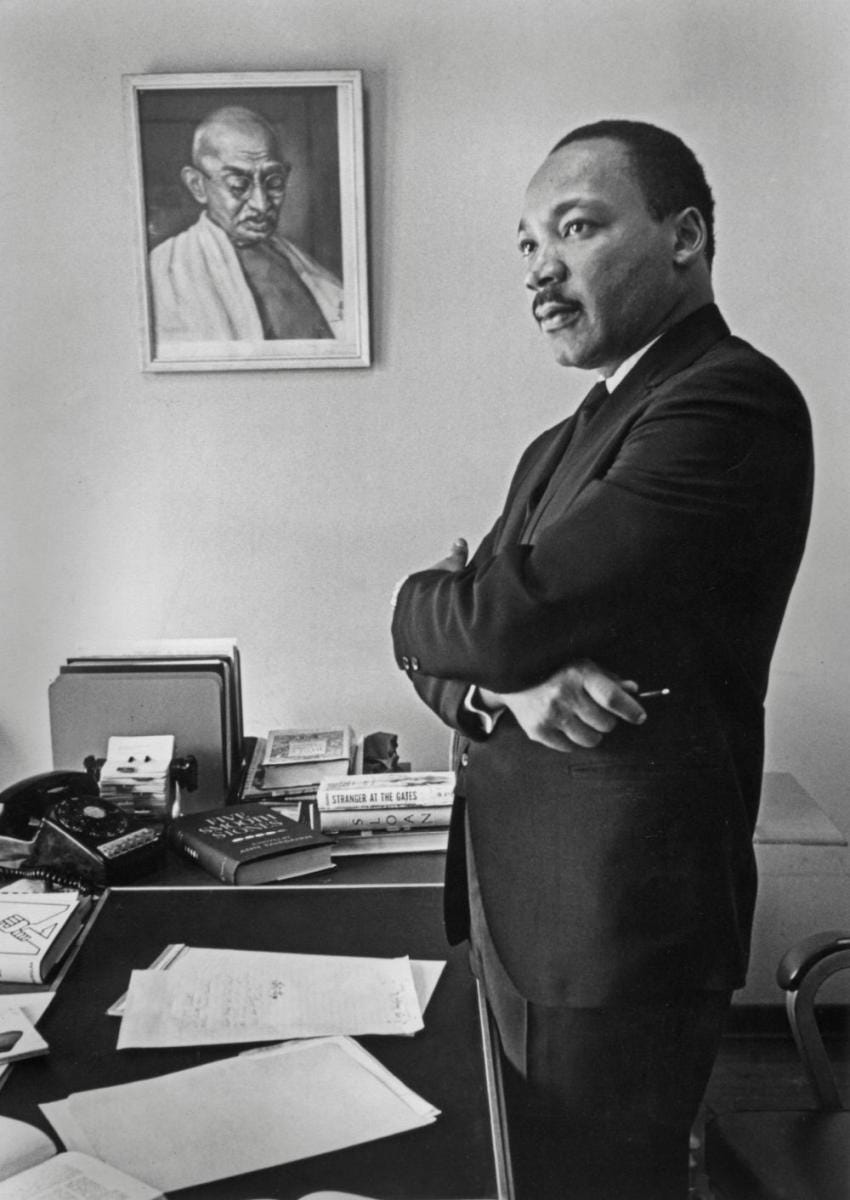
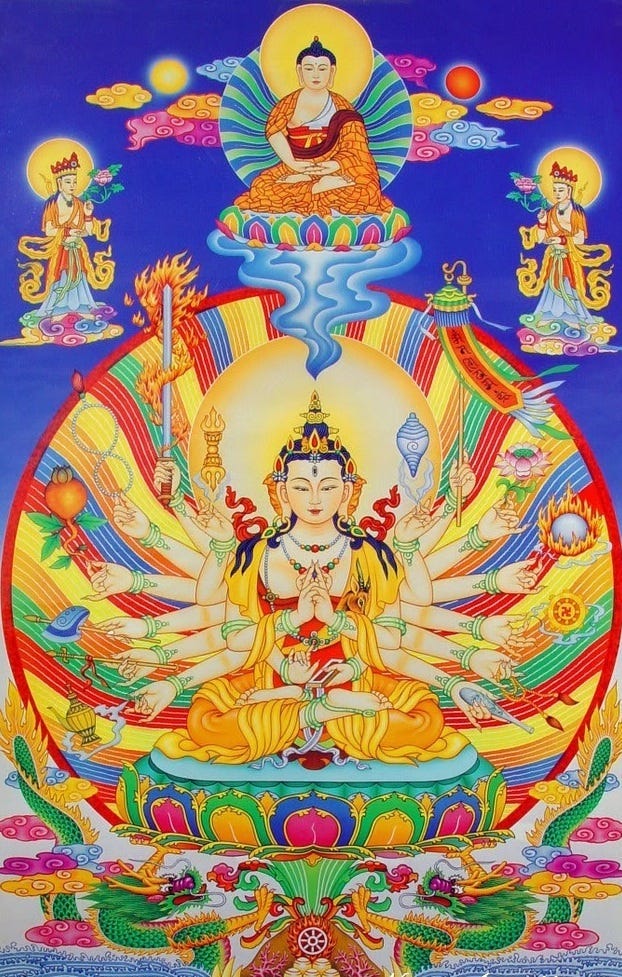

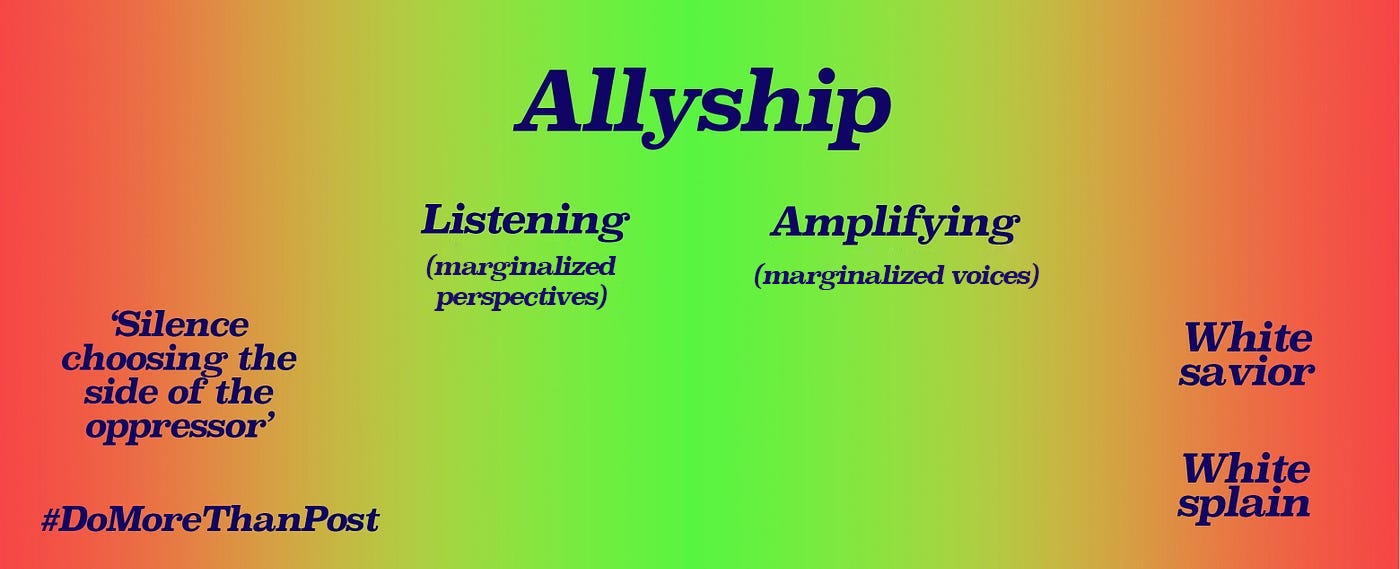
Thanks for this, Bob - powerful insights and good resources.